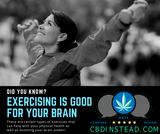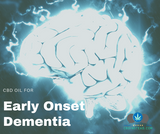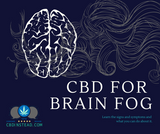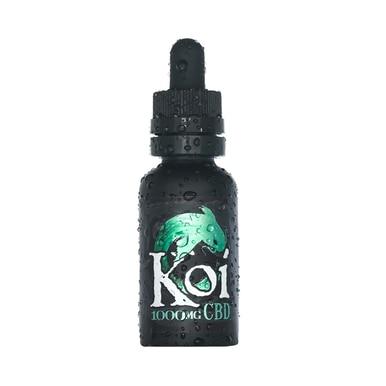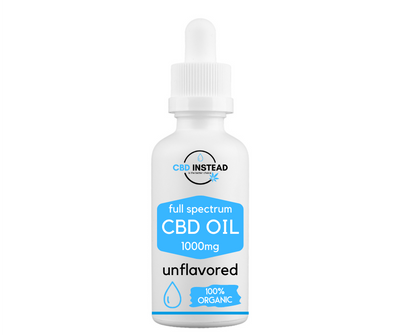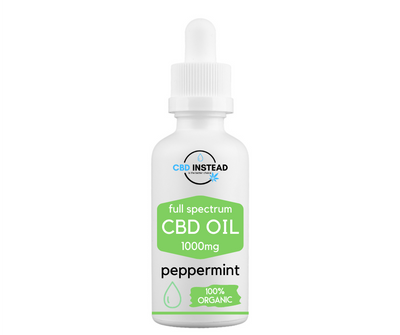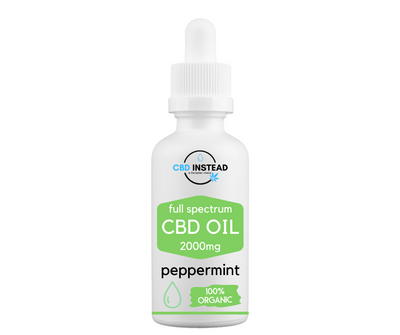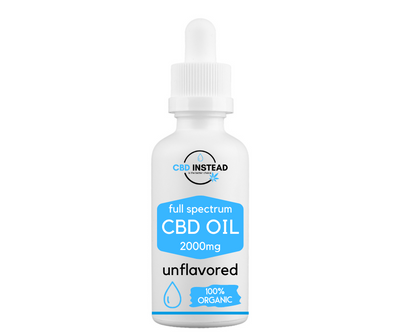The most common mental health issue we face today as Americans is anxiety. There are many speculations as to why we are so anxious, and why it is getting worse. With over 40 million American’s suffering, can cannabidiol (CBD) help with this anxious epidemic?
As a society, we continually force ourselves to multitask beyond our body’s standard capabilities, and the demands of the new world are just as heavy as the ones experienced by ancient man. We may not be protecting our families from sabertooth tigers, but we are sheltering them from poverty, violence, and poor life choices that have detrimental consequences.

The majority of the population spends most of their time on the way to work, at work, and coming home from work. The other half is sleeping giving several hours a day to get things accomplished that they want or need to. Even smashing in every chore and errand on the weekend isn’t enough. We have a lot on our plates, and the evidence could be in our Google searches.
Anxiety Is On The Rise
One great thing about Google is that it remembers and pockets everything everyone searches, making it easy for researchers and businesses to know what the public is interested in. What it does is recognize keyword phrases that people often use like, “How to” and “Halloween Decorations.”
In 2016, published author and writer for the New York Times Seth Stephens-Davidowitz did research on the correlation between Google searches and the rate of anxiety throughout the United States. He found that the rate that anxiety phrases were searched correlated with survey measures of anxiety. So this leads him to believe that people who are looking for things about anxiety on the internet have anxiety.

The Google searches for anxiety raised 150% from 2004 to 2016. So Stephens-Davidowitz started doing some digging to find out where the jump came from. He noticed that the highest search for panic attacks was found in less educated and poorer parts of the country. When it came to “anxiety and death,” Kentucky had the highest searches. The highest search for anxiety in the country is in Presque Isle, Main, where less than 20% of the residents have bachelors degrees.
He also took into account terrorist attacks, assuming that they would cause a rise in anxiety searches. To his surprise, attacks like the Boston Marathon Bombing and the Orlando Night Club Shooting gave no spike in the searches.
He also looked into politics; something that gets the whole country riled up. When looking at the 2004 George W. Bush vs. John Kerry election, he thought he would see a rise in anxiety searches because of their use of terrorism in their political speeches. He also believed that after Doland Trump had all but secured the final votes, searches would spike sky high, but they didn’t. There was no correlation between aggressive politicians and a rise in anxiety.
He did find two factors that had enormous spikes in searches. One he had suspected, but the other came as quite a surprise.
The first is the major recession. Stephens-Davidowitz found that states that were hit harder had higher searches for anxiety and anxiety-related keywords. This comes to no surprise, as many have discussed the impact the broken economy has on our society’s mental health.
When searching for keywords, Stephens-Davidowitz used a service called Google Correlate which let him see when specific keywords were highest in the same week. His example was in the Christmas season, people are searching for sweaters, hot cocoa, and scarves in the same week. When he examined the keyword panic attack, he found that people were also searching for opiate withdrawals during the same time period.
He also found that the areas with the highest rate of prescription opiates prescribed, they also had the highest amount of panic attack searches. Even though the prescription rates have fallen as we gallantly battle the opioid crisis, the search for panic attacks and opiate withdrawals has continually risen.
Depression Could Be Causing People To Be More Anxious
Psychologist Edward Shorter Ph.D. thinks that there is more to anxiety than google searches. He sees hard data for the incline in anxiety in his everyday job. He believes there is a difference between apprehensiveness and general anxiety disorder. Though, excessive apprehensiveness can turn into a full-blown anxiety disorder. The anxiety he speaks of is a constant anxiety that persists for long periods of time. Some people will have this uneasy, anxious feeling for months, and that is when it becomes a clinical issue.
Shorter recognizes that suicide is not a direct link to anxiety, but more so depression. But he points out that depression’s most common symptom is anxiety. The suicide rate between 1999 and 2013 increased by 24%, which Shorter says is a huge leap. This leads him to believe that while depression and suicide are rising, so is anxiety on their coattails.

Shorter has a different view on how the search results go unchanged during traumatic events. He sees that social media magnifies events, he believes people are using it to communicate fear which is the backbone of anxiety. Because of what people are seeing online they are canceling trips overseas and taking their kids to school even when it interferes with their work schedule. He believes that the search results actually show our lack of evaluation of risks.
How Are We Coping With Anxiety?
Anxiety can be controlling. The gut sensation that something terrible is about to happen that is constant and can make any thought of happiness a fantasy. It causes people to make poor choices, having their brain rattled and unfamiliar with reality. Many fall into risky behaviors like irresponsible sexual activity, heavy drug use, gambling, and violence. They just can’t handle the tingling sensation that covers their body that makes them want to rip their skin off, so they find an escape.

Almost everyone is guilty of looking for an escape. Most people just go to Florida. But when someone is riddled with anxiety, their brain is not functioning correctly. Healthy coping mechanisms aren’t the first things that come to mind, just a quick fix to get out of this metaphorical bodysuit made of crawling bugs.
The most common quick fix is Xanax. It is meant to be a temporary fix for anxiety while you get yourself under control, but a lot of patients find themselves unable to stop taking it. When they take the drug, their body becomes numb to the monster crawling under their skin, their stomach is floating rather than sinking, and their mind is all but stopped. Finally, the race between thoughts has finished, and they can relax. It is very similar to taking pain medication. The soothing relaxation and good feeling that comes from relief, on top of chemicals that make you intoxicated.
But the thing about painkillers and anxiety medications like Xanax is the next day. When you take pain medicine, and you wake up the next morning, and it is mostly out of your system, your pain comes back hard. It multiplies into something unbearable, which is why many people continue taking pain medication.

The same goes for barbituates. The next day, the bugs that once tickled their skin turn into a burning slime that covers every inch of their body. Their stomach might as well be bursting out of their toes because it doesn’t seem to feel like it could go any lower. Their heart rate will also increase, which just exacerbates the problems. Every terrible thought in existence fills their head like a balloon, and they feel like they will inevitably pop at any moment.
So they go and take another pill. They feel normal, they feel okay. But in a few days, one pill won't be enough. Their tolerance will rise and eventually it can become a problem if they aren’t seeking treatment other than medication.
Regardless of what medication you are taking, very rarely is the medicine the sole solution to mental health problems. Counseling, therapy, change in environment, and change in lifestyle also have to be used for treatment to have its full effect. You will always need your anxiety medicine if you let yourself depend on it unless you have a chemical imbalance that cannot be altered without medication.
Commonly people smoke marijuana to self-medicate for their depression and anxiety. Which is ineffective if they are using street marijuana because they don’t know what they are smoking. It can actually be more harmful to their psyche than any good. The problem with cannabis from the street, besides the fact that it is illegal, is that the THC level is too high. (No pun intended)
How CBD Can Help With Anxiety
CBD interacts with a system in the body called the Endocannabinoid System. It is in charge of the regulation of the body, and CBD’s job is to make sure it is running smoothly. For an overactive immune system that causes arthritis, CBD tells the immune cells to calm down and keeps them from spreading from the affected area. If the brain is being overactive from anxiety, it will calm down the neurotransmitters, and block them from over activating receptors in the brain.
CBD Helping With THC Effects
The first thing CBD can do is help people medicating with THC. Many people who experience anxiety from smoking marijuana are experiencing a THC overload. Having too much THC in the marijuana plant may seem impossible to some, but it can be harmful to the brain if not backed by CBD. If your marijuana is making you anxious, sprinkle some CBD isolate over your herb. Or you could medicate throughout the day with a CBD E-liquid pen.
CBD Helping With Depression
If the rise in depression is the cause for the increase of anxiety, medical marijuana can also help solve this issue. CBD works as an antidepressant, increasing the levels of serotonin and endocannabinoids like anandamide that bring feelings of slight euphoria.
Possible Cell Regeneration
The hippocampus has been discovered to be smaller in patients who suffer from anxiety or depression. Animal testing involving mice indicated that CBD could help the hippocampus regenerate neurons. If they find that CBD can regenerate cells in the human hippocampus, they can find a way to help patients who have suicidal thoughts. Individuals who are suicidal suffer from damage to their neural plasticity. By healing that damage, patients could begin thinking more rationally, and we could have a better understanding of depression and anxiety.
Human Studies On Anxiety
There was a double-blind study done on individuals who suffer from general social anxiety disorder. Once administering CBD and a placebo to the subjects, those who took the CBD had noticeably less anxiety. They also ran brain scans to document any chemistry changes, and they noted the changes consistent with antianxiety effects.
During a test with subjects who have anxiety during public speaking, they put their fears to the test. They tested the patient's heart rate and blood pressure while they asked the subjects to perform. They found that the subjects who took CBD had significantly less anxiety in front of the crowd than their counterparts.

If you are exhausted from battling your anxiety, and you don’t want to dedicate your life to pharmaceuticals, talk to your doctor about making a change in your medication. There are plenty of ways to take CBD to help with anxiety. Hemp oil tinctures and E-liquid pens are the most effective for panic attacks or peak moments of stress. Taking CBD edibles or pills can help you have an all-day relief for people who have anxiety all throughout the day. There is something for everyone, and it is entirely safe to use. Check out our shop to find the best fit for you.











